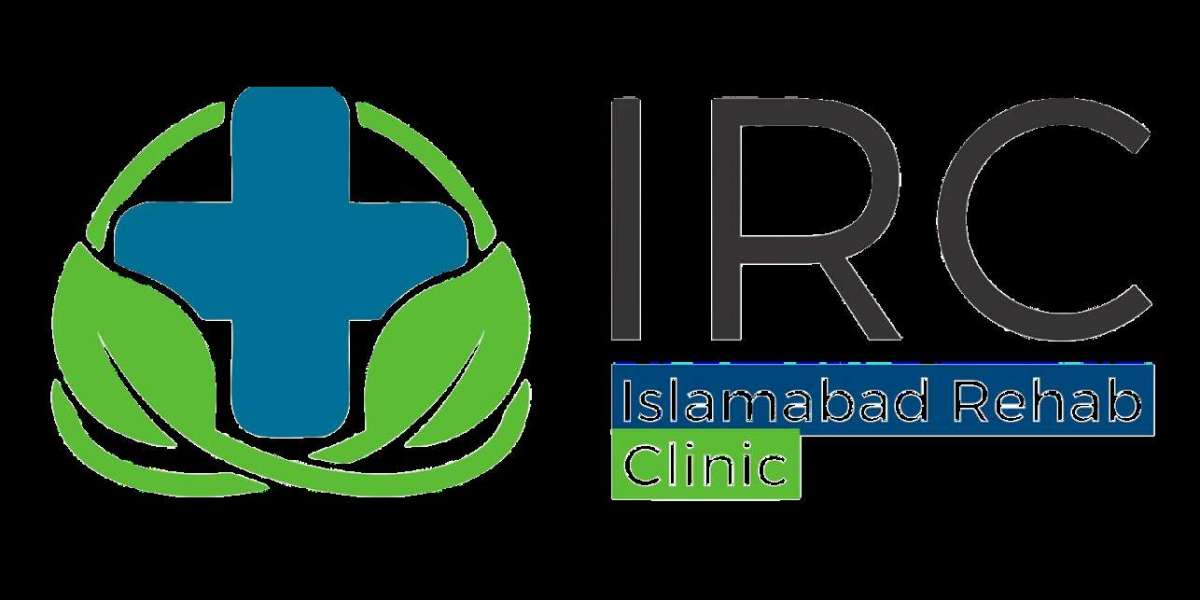Introduction
Ice rehab centers play a crucial role in helping individuals overcome addiction to methamphetamine, commonly known as "ice." This comprehensive guide explores the intricacies of ice rehab, offering insights into the types of treatment available, the benefits of professional help, and the unique challenges faced by those addicted to ice. With a focus on creating a supportive and effective recovery environment, this article aims to provide valuable information for individuals and families seeking help. By understanding the various aspects of ice rehab, you can make informed decisions and take the first step towards a healthier, drug-free life.
What is Ice Rehab?
Ice rehab refers to specialized treatment programs designed to help individuals overcome addiction to methamphetamine. These programs provide a combination of medical, psychological, and holistic therapies to address the complex nature of ice addiction.
Key Features of Ice Rehab Programs
Medical Detoxification
- Supervised Withdrawal: Managing withdrawal symptoms under medical supervision.
- Medication-Assisted Treatment (MAT): Using medications to ease withdrawal symptoms and reduce cravings.
Therapy and Counseling
- Individual Therapy: One-on-one sessions with a therapist to address underlying issues.
- Group Therapy: Support groups to share experiences and build a community.
- Family Therapy: Involving family members to create a supportive environment.
Holistic Approaches
- Mindfulness and Meditation: Techniques to manage stress and cravings.
- Exercise and Nutrition: Promoting physical health and well-being.
Aftercare and Support
- Continued Therapy: Ongoing counseling and support groups.
- Relapse Prevention: Strategies to maintain sobriety and avoid triggers.
Types of Ice Rehab Centers
1. Inpatient Ice Rehab Centers
Inpatient rehab centers provide intensive treatment in a residential setting, offering 24/7 support and supervision.
- Structured Environment: Ensuring a safe and controlled space for recovery.
- Comprehensive Care: Access to medical, psychological, and holistic therapies.
2. Outpatient Ice Rehab Centers
Outpatient centers allow individuals to receive treatment while living at home, offering flexibility and continued support.
- Flexible Scheduling: Balancing treatment with daily responsibilities.
- Community Integration: Maintaining connections with family and community.
3. Luxury Ice Rehab Centers
Luxury rehab centers offer high-end amenities and personalized care, catering to individuals seeking a comfortable and exclusive treatment experience.
- Luxurious Accommodations: Private rooms and upscale facilities.
- Advanced Therapies: Access to cutting-edge treatment techniques and holistic therapies.
4. Public Ice Rehab Centers
Public rehab centers provide affordable treatment options, often funded by government or non-profit organizations.
- Accessibility: Available to those with limited financial resources.
- Community Support: Integration with local community services.
The Process of Rehabilitation for Ice Addiction
1. Assessment and Intake
The initial phase involves a comprehensive assessment to develop a personalized treatment plan.
- Medical Evaluation: Assessing physical health and substance use history.
- Psychological Assessment: Understanding mental health status and emotional needs.
2. Detoxification
Detoxification is the process of eliminating ice from the body under medical supervision.
- Medical Supervision: Managing withdrawal symptoms safely.
- Supportive Care: Providing comfort and support during the detox process.
3. Therapy and Counseling
Therapy is the cornerstone of addiction treatment, focusing on addressing the root causes of addiction.
- Individual Therapy: One-on-one sessions with a therapist.
- Group Therapy: Support groups with others facing similar challenges.
- Family Therapy: Involving family members in the recovery process.
4. Aftercare and Support
Aftercare is crucial for maintaining sobriety and preventing relapse.
- Continued Therapy: Ongoing counseling sessions.
- Support Groups: Participation in groups such as Narcotics Anonymous (NA).
- Relapse Prevention: Strategies to avoid triggers and maintain a sober lifestyle.
Unique Challenges Faced by Individuals in Ice Rehab
1. Intense Cravings and Withdrawal Symptoms
Ice addiction often leads to severe cravings and withdrawal symptoms, making recovery challenging.
- Medication-Assisted Treatment: Using medications to ease withdrawal symptoms.
- Supportive Care: Providing emotional and psychological support.
2. Mental Health Issues
Many individuals with ice addiction also struggle with co-occurring mental health disorders such as depression and anxiety.
- Integrated Treatment: Addressing both addiction and mental health issues simultaneously.
- Therapeutic Support: Access to mental health professionals and specialized therapies.
3. Social and Environmental Triggers
Environmental factors and social influences can contribute to relapse.
- Relapse Prevention Strategies: Teaching coping mechanisms and strategies to avoid triggers.
- Support Networks: Building a strong support system through family and community involvement.
Benefits of Professional Ice Rehab Programs
1. Comprehensive Care
Professional rehab programs offer a comprehensive approach to treatment, addressing all aspects of addiction.
- Medical Support: Access to healthcare professionals and medications.
- Psychological Care: Therapy and counseling to address emotional and mental health needs.
- Holistic Approaches: Incorporating holistic therapies to promote overall well-being.
2. Structured Environment
A structured environment provides a safe and controlled setting for recovery.
- 24/7 Support: Access to continuous care and supervision.
- Safe Space: Minimizing exposure to triggers and stressors.
3. Peer Support
Being surrounded by others who understand the challenges of addiction can provide invaluable support.
- Group Therapy: Sharing experiences and building a sense of community.
- Support Networks: Creating lasting connections with others in recovery.
Case Study: Ice Rehab in Islamabad
The Ice Rehab Center in Islamabad offers comprehensive and confidential treatment for individuals struggling with ice addiction. Key features include:
- Confidential Treatment: Ensuring privacy and confidentiality for all patients.
- Comprehensive Programs: Providing detoxification, therapy, and aftercare support.
- Supportive Environment: Creating a safe space for individuals to heal and recover.
FAQs About Ice Rehab
1. What is ice rehab?
Ice rehab is a specialized addiction treatment program designed to help individuals overcome addiction to methamphetamine, providing a supportive and tailored environment for recovery.
2. What services are offered in ice rehab centers?
Services include detoxification, individual and group therapy, mental health support, holistic therapies, and aftercare planning.
3. How do I choose the right ice rehab center?
Consider factors such as accreditation, treatment programs, facility amenities, cost, and success rates.
4. What are the benefits of professional ice rehab programs?
Benefits include comprehensive care, a structured environment, and peer support.
5. What challenges do individuals face in ice rehab?
Challenges include intense cravings, withdrawal symptoms, mental health issues, and social and environmental triggers.
6. How long does ice rehab take?
The duration of rehab varies depending on the individual’s needs and the type of program, ranging from a few weeks to several months.
7. Can family members visit during rehab?
Many centers encourage family involvement and allow visits during specified times. Family therapy sessions may also be part of the program.
8. Is rehab covered by insurance?
Many insurance plans cover some or all of the costs associated with rehab. It’s important to check with your insurance provider and the rehab center.
The Role of Family and Friends in Recovery
Family and friends play a crucial role in the recovery process. Their support can make a significant difference in the success of the treatment. Involving loved ones in therapy sessions and educating them about addiction can help create a supportive environment for the individual in recovery.
The Future of Ice Rehab
The field of ice rehab is continuously evolving, with new treatments and approaches being developed. Future trends may include:
- Telehealth Services: Providing remote therapy and support through digital platforms.
- Personalized Treatment Plans: Using data and technology to create individualized treatment plans.
- Holistic Approaches: Incorporating alternative therapies like yoga, acupuncture, and art therapy into treatment programs.
Conclusion
Ice rehab in Islamabad is essential in helping individuals overcome addiction to methamphetamine and reclaim their lives. By providing structured, comprehensive care and support, these centers help individuals navigate the challenges of recovery and build a foundation for a healthier future. Understanding the various types of rehab centers, their services, and how to choose the right one can make a significant difference in the recovery process. Whether you are seeking help for yourself or a loved one, this guide aims to provide the information needed to make informed decisions and find the right path to sobriety.








